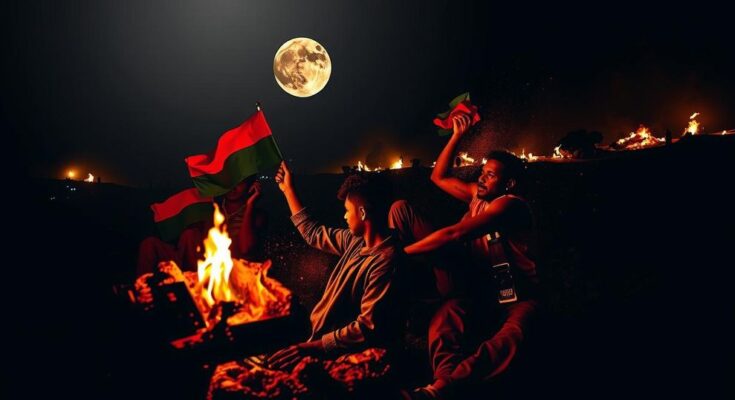Libya’s political landscape remains fragmented and unstable in the wake of the 2011 overthrow of Gadhafi. Recent tensions around control of the central bank, vital for handling oil wealth, threaten the precarious peace established after the 2020 civil war. The government led by Prime Minister Dbeiba operates in the west, while General Hifter commands the east. Attempts to dismiss the bank’s head have sparked controversy, revealing the rivalries between factions competing for economic power and highlighting the ongoing challenges for national unity.
Libya has remained mired in instability and conflict since its long-serving dictator was ousted during the Arab Spring uprisings in 2011. Following a civil war that concluded in 2020, the nation faces a precarious divide, with competing governments in the east and west frequently at odds. Recently, this political impasse has been exacerbated by contentious efforts surrounding the central bank, the linchpin of Libya’s considerable oil wealth. In a recent development, Libya’s presidential council attempted to dismiss the head of the central bank, Sadik al-Kabir, through a decree. Mr. Kabir’s refusal to resign and subsequent declarations from analysts that the decree lacked legal foundation have contributed to a growing crisis. The western government’s endorsement of this dismissal led the presidential council to announce its intention to appoint a new central bank board, marking a significant escalation in the ongoing power struggle. Currently, the U.N.-recognized government under Prime Minister Abdul Hamid Dbeiba governs only the western region, while the eastern counterparts operate under General Khalifa Hifter, who rules with an iron fist, maintaining a parallel administration that has been in conflict with the west. The truce following Hifter’s failed attempt to capture the capital, Tripoli, has brought a fragile peace, which is constantly threatened by self-serving negotiations over oil resources.
The backdrop of Libya’s political landscape is characterized by decades of tyranny followed by civil unrest. The toppling of Moammar Gadhafi in 2011 catalyzed significant upheaval, leading to a fragmented state. The civil war that concluded in 2020 did not restore unity but rather solidified a bifurcated governance system with two primary factions. Key alliances and negotiations have emerged among powerful militias, primarily surrounding the management of Libya’s lucrative oil resources. Despite the potential for conflict, a precarious stability has arisen from the division of oil revenues, benefiting various power brokers while failing to address the basic needs of the Libyan populace. The current governance model, established by a U.N.-facilitated political agreement, has come under scrutiny as the envisioned elections and national unity remain unrealized.
The ongoing struggle for control of Libya’s central bank underscores the fragility of the country’s political arrangement, which has been persistently challenged by competing interests. As rival factions maneuver for dominance over key financial institutions that manage vast oil wealth, the risk of renewed conflict looms larger than ever. Without the establishment of a cohesive government and resolution to power disputes, Libya’s tentative peace may ultimately collapse under the weight of political bickering and factionalism, further jeopardizing the livelihoods of its citizens.
Original Source: www.nytimes.com




